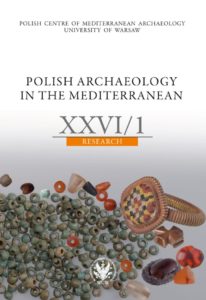Settlement history of Iraqi Kurdistan: an assessment halfway into the project
Settlement history of Iraqi Kurdistan: an assessment halfway into the project
Author(s): Rafał KolińskiSubject(s): Archaeology, Museology & Heritage Studies, Ancient World
Published by: Wydawnictwa Uniwersytetu Warszawskiego
Keywords: settlement history; North Mesopotamia; Iraq; Kurdistan; heritage; Paleolithic; Neolithic; Chalcolithic; Bronze Age; Iron Age;
Summary/Abstract: The objectives of the “Settlement history of Iraqi Kurdistan” project include the identification and recording of archaeological sites and other heritage monuments across an area of more than 3000 km2 located on both banks of the Greater Zab river, north of Erbil. A full survey of the western bank was carried out over three field seasons, in 2013, 2014 and 2015 (leaving the Erbil/Haūler province to be studied in the next two seasons). To date, at least 147 archaeological sites dating from the early Neolithic Hassuna culture to late Ottoman times have been registered. Moreover, the project documented 39 architectural monuments, as well as the oldest rock reliefs in Mesopotamia dating from the mid 3rd millennium BC, located in the village of Gūnduk. Altogether 91 caves and rock shelters were visited in search of Paleolithic and Pre-Pottery Neolithic remains. The paper is an interim assessment of the results halfway into the project, showing the trends and illuminating gaps in the current knowledge.
Journal: Polish Archaeology in the Mediterranean
- Issue Year: 1/2017
- Issue No: XXVI
- Page Range: 579-590
- Page Count: 12
- Language: English

